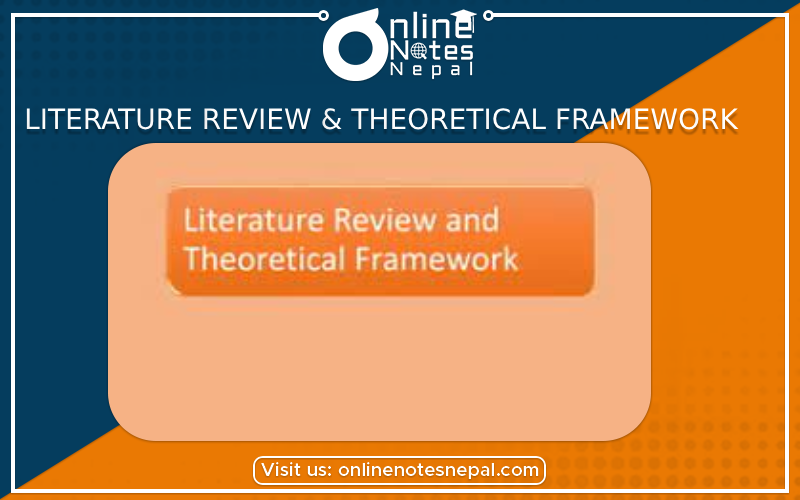Published by: Anu Poudeli
Published date: 14 Jul 2023

A literature review and theoretical framework are critical components of academic research, especially in the social sciences, humanities, and related disciplines.
Let's go over each subject in further depth:
LIterature Review
A literature review is a thorough assessment and analysis of current scholarly works, publications, and research on a given topic or research question. It fulfills several functions, including:
a. Determining the current level of knowledge: A literature review assists researchers in understanding the existing body of knowledge and research gaps about their topic of interest.ies, as well as allied fields. Let's go over each subject in further depth:
A literature review is an in-depth examination of the literature.
b. Providing context
: Researchers provide context for their study and demonstrate its significance within the larger academic environment by reviewing relevant literature.
c. Evaluating techniques and theories: To guide their own research design, researchers critically evaluate the procedures, theories, and concepts employed in earlier studies.
d . Supporting Arguements and Claims : Providing evidence and support for the arguments and claims made by researchers in their work: Literature reviews give evidence and support for the arguments and claims made by researchers in their work.
e. Avoiding duplication: To avoid duplicating prior studies and instead building on existing knowledge, researchers can discover what has previously been done in their field.
Theoretical Framework
A theoretical framework serves as a conceptual framework or model that guides the research process. It is made up of a collection of interconnected theories, concepts, and ideas that guide study design, data gathering, analysis, and interpretation. A theoretical framework's key components include:
a. Theoretical concepts: Researchers identify and characterize the important concepts and variables pertinent to their research, drawing on existing theories or establishing their own.
b. links and hypotheses: Based on established theories or the researcher's own assertions, the theoretical framework defines the links and hypotheses that the research attempts to investigate.
c. Contextual relevance: The theoretical framework must be relevant and applicable to the specific research problem or subject under consideration.
d. Research design and methodology: To guarantee that research methods, data gathering techniques, and data analysis strategies correspond with the underlying theoretical assumptions, the theoretical framework influences the selection of research methods, data collection techniques, and data analysis strategies.
e. Findings interpretation: The theoretical framework assists researchers in interpreting their findings in light of current theories and concepts, contributing to the field's greater theoretical knowledge.
It should be noted that the literature review and theoretical framework are inextricably linked. By reviewing existing research and hypotheses, the literature review lays the groundwork for building the theoretical framework. In turn, the theoretical framework directs the research process and is refined based on the results of the literature study and subsequent data analysis.
The literature review and theoretical framework are both crucial components of rigorous academic research because they ensure that the study is founded in existing knowledge while also providing a foundation for producing new insights and advancing the area.